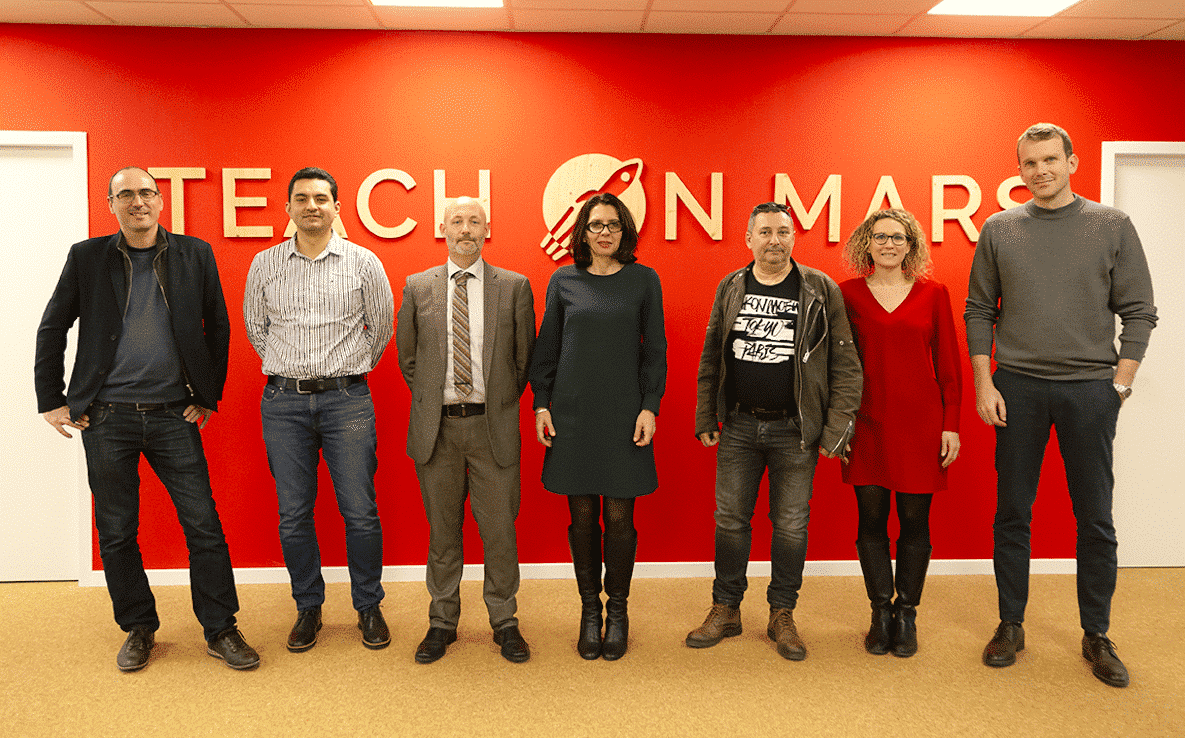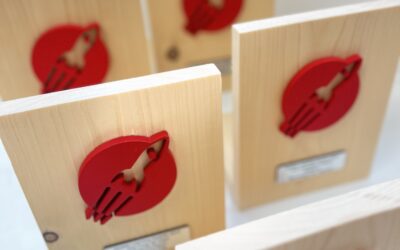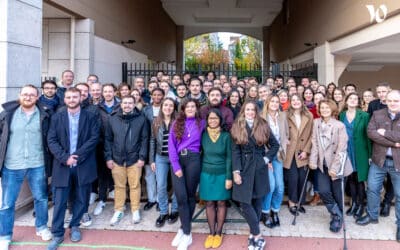Teach on Mars and Inria, the French National Institute for Research in Digital Science and Technology, have announced the signing of a new research partnership which aims to build intelligent algorithms into learning systems to deliver more effective solutions for learners, trainers and organisations. By embedding Artificial Intelligence (AI) at the heart of our solution, we will be able to expand training capabilities and make training strategies more operational, while reducing the cost of developing programmes.

The official launch of the partnership took place on Monday, February 10, 2020 in the presence of the entire Wimmics project team, a joint research team between the CNRS, Université Côte d’Azur and Inria Sophia-Antipolis, and several journalists.
This partnership will enable the two entities to collaborate on AI research work and to pursue joint research and development activities in the field of learning development. It is being initiated by a collaboration with the Wimmics research team, a specialist in web-instrumented AI.
The two partners have thereby formalized their willingness to pool resources to foster the emergence and application of new intelligent learning algorithms. AI will facilitate, on the one hand, the understanding of training needs and, on the other hand, the development and recommendation of personalised learning paths adapted to each learner (level of skills and knowledge, learning preferences and time available).
By enabling automatic indexing of instructional resources, AI will also help L&D professionals to generate relevant and motivating content. Learning strategies will thus be better aligned with the needs and objectives of learners and organisations. The learning ecosystem specific to each organisation will function more efficiently and at lower cost, thanks in particular to recommendations that will optimise the time devoted to training. With this Time to Competency approach, AI will act as a powerful driver for training strategies and make them more operational, while reducing the overall cost of learning programmes.
The benefit of this collaboration lies in the synergy between our complementary know-how. By pooling expertise and resources, our two organisations offer a solution that will be very closely aligned with the expectations of learners, facilitators, instructional designers and organisations. This agreement enables us to benefit from the value-creating algorithms developed by Inria and allows Inria to validate its work on real data and real learning environments, and to partner our ambitious projects. This partnership is a good example of the dynamics of Sophia Antipolis’ innovation ecosystem, and of decompartmentalization between the worlds of business and research.
“I am delighted to announce the partnership with Inria, which came about in a very natural kind of way because introducing AI is set to mark a new era in the development of L&D. At a time when the ultra-personalisation of training is an increasingly obvious need, building intelligent algorithms into our solution is a fundamental challenge that we have to overcome in order to optimally support the development of user skills and reduce the cost of learning programmes, for the benefit of learners, L&D professionals and organisations. I am convinced that the added value that Inria brings to the table is gong to help us to further develop the agility of the Teach on Mars solution!” enthuses Vincent Desnot.
“This partnership, which is an integral part of our policy of supporting digital Deeptech start-ups, will enable us to strengthen our ties with Teach on Mars. We are particularly proud to be combining our expertise and resources with the European leader in mobile learning. The complementarity between the expertise of Teach on Mars and the Wimmics project team, a joint research team between the CNRS, Université Côte d’Azur and Inria, will enable us to make further important advances and develop some of the innovations that will ultimately lead to the jobs of tomorrow,” explains Maureen Clerc, Director of the Inria Sophia-Antipolis – Méditerranée research center.
What they say in the press…
- Teach on Mars moves up a gear on AI, INRIA brings its expertise (“Teach on Mars accélère sur l’IA, l’INRIA apporte son expertise”), Laurence Bottero, La Tribune
- Teach on Mars and Inria Sophia looking to make training more effective through AI (“Comment Teach on Mars et Inria Sophia veulent rendre les formations plus efficaces grâce à l’IA”), Karine Wenger, Nice Matin
- Inria and Teach on Mars sign a partnership on AI (“L’Inria et Teach on Mars signent un partenariat sur l’IA”), Stratégies
- Teach on Mars and INRIA aboard the same innovation shuttle (“Teach on Mars et l’INRIA dans la même navette”), Pierre-Olivier Burdin, La Tribune Bulletin Côte d’Azur
And on social media…
https://twitter.com/l_bottero/status/1226943322159296512
https://twitter.com/MatinalecoATLAN/status/1227180139085271040?s=20
https://twitter.com/Nice_Matin/status/1226936124637110272
https://twitter.com/KarineWenger/status/1226933350641938434
https://twitter.com/Tribuca/status/1227146225427927040?s=20

Cornélia a enfilé sa tenue de cosmonaute en 2017. Après 5 années au service des clients de Teach on Mars en tant que Customer Success Manager, Cornélia prend une nouvelle trajectoire en pilotant les projets de communication & marketing, ses premiers amours, toujours avec l’ambition d’explorer la galaxie !



![[Press Release] LumApps announces the acquisition of Teach on Mars, the leader in microlearning in Europe](https://www.teachonmars.com/wp-content/uploads/2023/12/✅-1-400x250.png)
